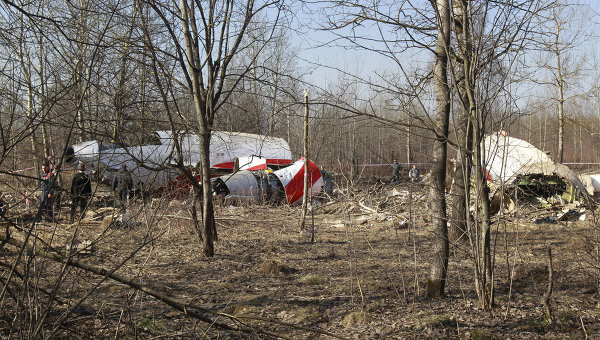
Address of the reception office of the Investigative Committee: Moscow, ul. Pervaya Frunzenskaya, d 3a
Address for writtent applications: 105005, Moscow, Tekhnichesky Pereulok, 2
Address of the reception office of the Investigative Committee: Moscow, ul. Pervaya Frunzenskaya, d 3a
Address for writtent applications: 105005, Moscow, Tekhnichesky Pereulok, 2

The Russia’s Investigative Committee continues investigating the crash of Tu-154M plane of Polish Air Force that happened on 10 April 2010 at Smolensk-Severny airfield that claimed lives of 96 Polish citizens including president of Poland Lech Kaczynski.
As of today the main work has been done and there are 400 volumes of records. Over 500 witnesses have been questioned, over 1,500 different objects and documents have been examined, over 1,500 expert examinations have been run and there are 8 more in progress at present.
Under international cooperation and following request on legal assistance in the area of criminal proceedings the competent bodies of Poland and the Russian Investigative Committee exchange materials. We assess the cooperation with Polish investigative authorities as constructive and efficient. However, there are some requests not followed by Poland which is one of the reasons shy the final decision cannot be made yet.
At present we can say that a sum of factors is accounted for the crash. Those are failure of the crew to timely make the decision to go for a backup airfield when the weather conditions were against using the main one, descending to an altitude much lower than the minimal one set for making the second circle (100 meters) and lack of proper reaction to multiple signals of the warning system that the ground was too close.
As for the recent charges brought by the Polish prosecutor’s office against Russian flight controllers, I would like to repeat once more: Russian investigators have no reasons to pin even minimum of responsibility for the crash on the flight controlling team. They strictly followed instructions and international commercial aviation regulations.
I would like to remind that in accordance with the requirements of the Russian Air Navigation Information Collection captains of foreign aircrafts carrying out flights in Russia make decisions on the possibility of takeoff and landing with full responsibility for that decision. The same was told in the flight control unit – we can remember a phrase from the transcript of talks of the flight control team “this is the decision of international number one, he is there”. A flight controller informs on the conditions for accepting the plane, which was done in full: the flight controller allowed “trial” approach, but descending only to the altitude of 100 meters from which the plane had to go for the second circle. The crew confirmed the instruction, but failed to follow it.
In addition, the crew received information on poor weather from a pilot of Yak-40 plane that had landed in Smolensk earlier. Though there are some questions about the actions of that pilot too: being perfectly aware about poor weather conditions and poor visibility for landing he nevertheless twice repeated “you may try” which could also urge the crew to try landing.
I would also like to point out that claims made by some Poles that the issue of handing over the wreck of the plane is political are absolutely unfounded. There is no place for politics here. In any country the material evidence stays in the investigating body until the probe is finished. This is a standard practice in the whole world. The fragments of the plane are the material evidence so the question of handing them over will be resolved after the investigation is complete and the decision is made.
Head of Media Relations V.I. Markin